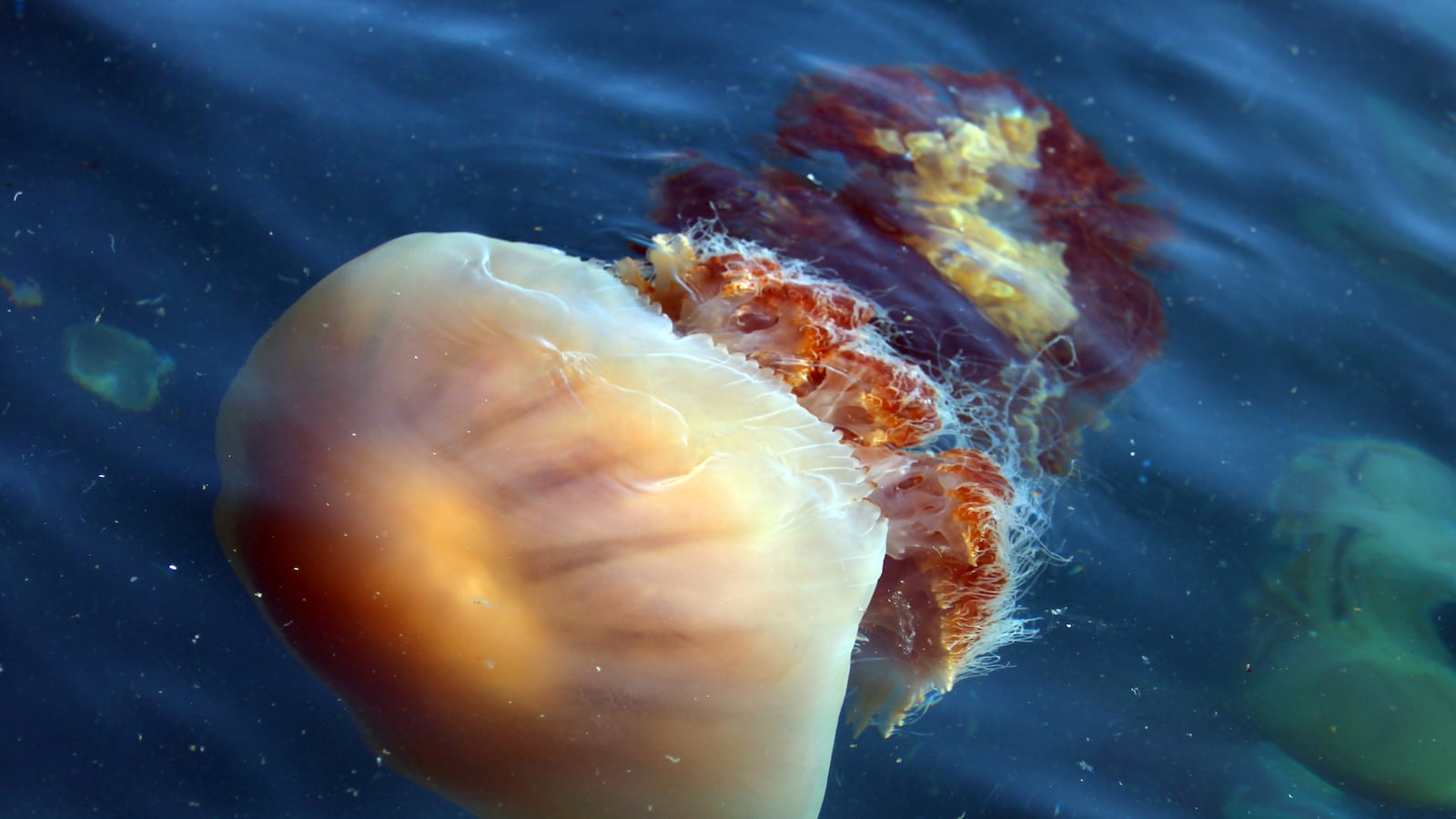What's your big idea?
Jellyfish, of all strange things, are turning out to be the unexpected and unwanted consequences of human impacts on our oceans. Jellyfish form large populations (called blooms) as a normal part of their life cycle, but our actions in the name of progress are giving them the perfect conditions to do more of it than probably ever before.

Who would have thought that the lowly jellyfish could cause so many problems, materializing almost completely out of left field as a major contender in changing ecosystems? Almost all of the things we are doing to intentionally or accidentally manipulate our oceans either directly favor jellyfish or put so much stress on other species that jellyfish are often the last man standing.
Fishing takes out the predators and competitors of jellies. Warmer water stimulates them to grow faster and breed more. Coastal construction gives them more places for their polyp stages to colonize. Reduced coastal oxygen gives them the competitive advantage compared with heavy breathers like fish and crustaceans. Pollution hurts fish and other species, but rarely affects jellyfish. And ships’ ballast water gives them a free ride to anywhere they haven’t been before.
While most people are aware of our impacts on the ocean—and indeed, on nature in general—most of us still see conservation as a moral issue or a conscience issue. “If I could afford to be more conscientious, I would be,” we might say. “But frankly, we were put on this earth to have dominion over nature, and it’s not my fault for being born human.” But the truth is, nature is our life support system, and every notch that we take out of it or whack into it is a notch out of our own quality of life, or that of our kids and grandkids. But most of us don’t see that nature is biting us back. And so, quietly, notch by notch, jellyfish continue to inherit damaged ecosystems.

Does the abundance of jellyfish in the ocean pose a threat to us?
Jellyfish blooms are the visible evidence that something is out of balance. In most cases, jellyfish are not able to take over a healthy ecosystem. Fish are too smart, big, fast, and numerous for jellyfish to come anywhere close to getting an upper hand. But as the fish falter, something opportunistic can take up that slack and, more often than not, that something is turning out to be jellyfish.
The mechanisms by which jellyfish can flip an ecosystem to their own—and keep it that way—are remarkable. Jellyfish eat the eggs and larvae of other species higher on the food chain, as well as the plankton that those larvae would eat. This “double whammy” of predation and competition enables jellyfish to cripple a food chain by essentially nibbling at its ankles. Moreover, jellyfish consume the eggs and larvae of higher quality food that we and other species would consider good eating, and convert it to lower quality food that provides little sustenance to humans. This second aspect of food conversion should be very worrisome to us, because we are essentially in competition with jellyfish, and they have the home court advantage.
So yes, on the one hand, the abundance of jellyfish poses a threat to us, but on the other hand, it’s not the jellyfish per se that are the threat but rather our own actions that are creating the context for jellyfish to flourish.
What will the ocean look like in the future?
When we look around the world at various bays and harbors, a pattern that becomes instantly clear is that many of the most heavily disturbed ecosystems have “flipped” to being dominated by jellyfish rather than fish. And most of these don’t show any hint of returning to what we would call normal.
This pattern tells us that the more we progress, the more we are transforming our oceans into something useless for our needs. We are suffering from our own success!
We are left with a choice of what to do with this information. We do not currently have the technology to undo the damage we have done. We fish, but we cannot so easily unfish. We pollute, but our feeble efforts at cleanup have been largely unsuccessful. The unpleasant but obvious truth is that if we keep hurtling toward a crummier way of life at breakneck speed, things are going to get crummier. But if we find value in having a healthy life support system, then we must slow the rate of decline to buy enough time that someone may have a chance of finding a way.






